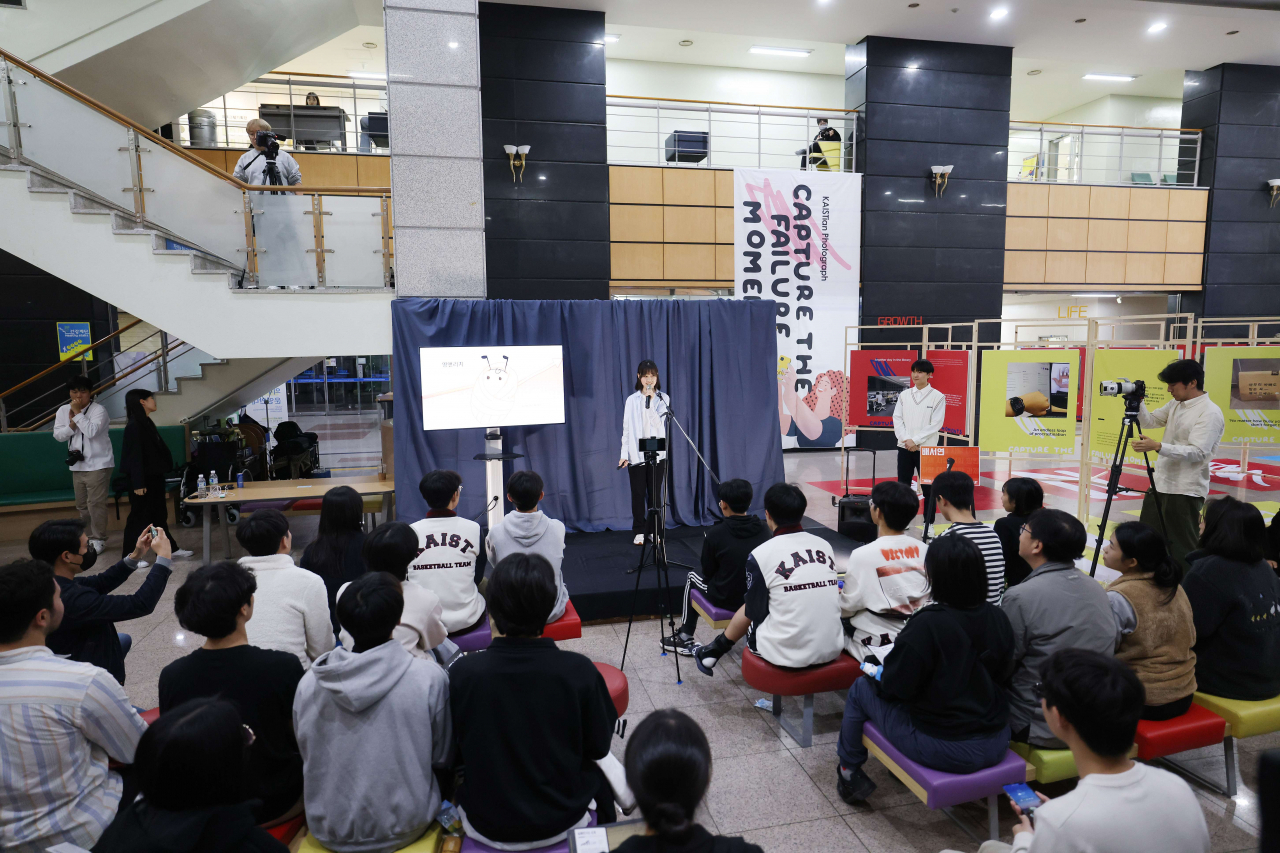 |
A KAIST student talks about her failures during the “Failed Tasks Showdown Contest” held at the school's campus in Daejeon on Wednesday. (KAIST) |
DAEJEON – A final-term essay that contained four sentences only, due to the writer’s social distancing-induced depression during the COVID-19 pandemic. An accidental discovery of an abnormal blood swelling in one’s own brain at a cancer research lab.
These are two of the entries of the “Failed Tasks Showdown Contest,” held Wednesday evening at the Daejeon-based Korea Advanced Institute of Science and Technology, better known as the KAIST.
Ten students from the nation’s top tech university, including the two involved in the aforementioned cases, took to the podium to boast about their setbacks and letdowns, vying for the title of having endured the worst "failures" on KAIST campus.
The audience of around 50 people which encompassed fellow students, researchers, professors as well as off-campus neighbors -- cheered, laughed and cried as they listened.
The hourlong event was held as part of the KAIST’s inaugural “Failure Week,” which ran from Oct. 23 through Nov. 3 to celebrate failures as an integral component of scientific inquiries, or any progress in any field.
As the fear of failure is particularly pervasive in South Korean society, it is important to instill among students and researchers the understanding that failing is simply a part of the journey, according to Ahn Hye-jung, an assistant professor of sociology and member of KAIST’s Center for Ambitious Failure.
“People fear failure because they see it as a huge and abstract concept,” Ahn told The Korea Herald.
“It takes courage to admit to failure and speak about it in front of other people. The event is a process of spreading that awareness and helping people accept and overcome that fear,” she added.
The center, established in June 2021 to help transform failures into pathways to success and change society’s perception of failures, has been conducting online workshops and events. This is its first offline endeavor for a bigger impact.
“We wanted to make things bigger,” Ahn said.
Another co-organizer of the failure week was a student organization named International Challengers for the Integration of Science and Technology and Society.
In an opening speech of the Wednesday evening’s contest, its president Kim Ji-hwan expressed hope that the event would help students learn to process their mistakes in a healthy way.
“This is an event where KAIST students share their failures and mistakes with one another with empathy,” Kim said.
The failed tasks showdown produced four winners, selected via a mobile vote from the audience. The researcher who stumbled upon one’s own abnormal brain condition while investigating cancer -- Moon Jin-woo, a graduate student of biological sciences -- were among the four.
On Friday, wrapping up the first-ever KAIST Failure Week, a seminar will invite professors from Barnard College of Columbia University in the US and Sungkyunkwan University in Seoul to speak about the beauty of failing and how to deal with failures in a healthy manner.







![[Herald Interview] How Gopizza got big in India](http://res.heraldm.com/phpwas/restmb_idxmake.php?idx=644&simg=/content/image/2024/11/20/20241120050057_0.jpg)